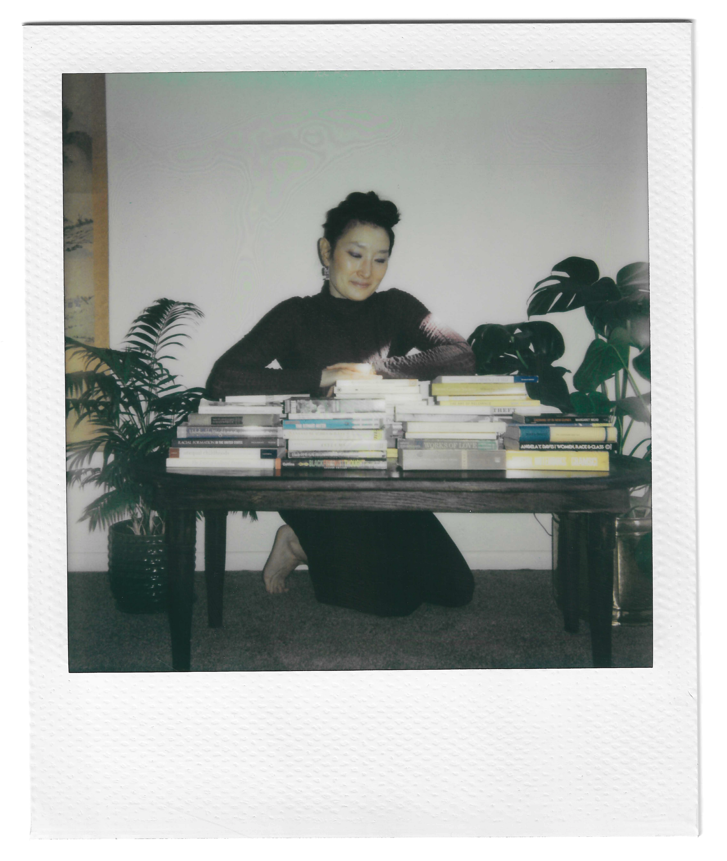
Writing
Can anything be sadder than work left unfinished? Yes, work never begun.
—Christina Rossetti
Expressing myself through writing was my first source of comfort. A private way for me to understand the world around me and to render it wholly my own. I was the most inspired by the Greek myths, poetry and essays by Romanticists like Wordsworth and Emerson, and confessional poetry by Anne Sexton and Sylvia Plath. These themes of the hero’s journey and the focus on emotion, particularly as it binds us to our natural world and in love, continue to permeate my creative and academic writing. My poetry follows in the style of confessional poets who find beauty in the full range of human emotion. I will always be drawn to the bravery inherent in spilling one’s guts on the page and the ingenuity in making it beautiful. While universalism has a hard time in academia, I apply these principles in my academic work by focusing on the micro-level moves that individuals take within social structure through cultural practices. My dissertation examined the utility of comedy to challenge racism by analyzing five decades of transformative American comedy in the post-Civil Rights era. My current book project, The Rebellious, combines the intimacy of participant observation and life story interviews to capture the comedy culture of The Comedy Store in La Jolla, CA. The Rebellious expands on the boundaries of academic methods, like ethnography, by sharing the researcher’s hidden feelings and process.
Academic Writing
My dissertation, “The Merits of a Fool,” combined theoretical, empirical, and narrative analysis of American sketch comedy from 1960-2000. It applied statistical, textual, and focus group data to the general question of how comedy challenges racism in the US and what that looks like over time. Focus groups were asked to discuss various sketches from the first season of Chappelle’s Show in all-white, all-black, and black-white groups of participants. Overall, participants spent most of their time negotiating, defending, or worrying about their laughter.
In 2020, the Journal of Ethnic and Cultural Studies published “Racism’s Back Door,” which explores the ways that comedy fundamentally alters our consciousness and identity formation through Hegel’s concept of Geist. This theoretical backdrop grounds the ensuing discussion on results from the statistical analysis of five decades of transformative American sketch comedy and narrative analysis of sketches from the Smothers Brothers Comedy Hour (1968), The Richard Pryor Show (1977), Saturday Night Live (1990), and Chappelle’s Show (2003).
Forthcoming in 2026 is the 3rd Edition of Pop Culture Freaks. I was invited to write the chapter on Race and Popular Culture. It will feature a new introduction on comedy and will expand the chapter’s existing discussions on race in American popular culture.
To read my article “Racism’s Back Door,” click here.
The Rebellious
The Rebellious is both an ethnographic portrait of comedy culture in Southern California and memoir on the author’s life during the research and her path to it. Dominant themes that tie the narratives together are finding purpose through cultural practices (like stand-up or research), trauma, and self-realization. Twenty-six San Diegan comics agreed to life story interviews that lasted an average of 3 hours. I used the green room at The Comedy Store in La Jolla and a room at the San Diego Central Library for interviews. I spent over 500 hours, or 6 months, at The Comedy Store going to open mics and headliner shows. In addition, I visited shows at the American Comedy Company, the Comedy Palace, Goodbar, Ken Club, Lestat’s, Madhouse, and Winston’s. I am hard at work transcribing interviews and expect to have a complete draft by 2026.
Poetry & Stories
Poetry was my earliest attachment to writing. That and journaling. I love poetry because it mimics the sensibilities of visual art, particularly paintings, because it’s the feeling that matters. But of course, those feelings can only permeate via the structure and mastery of the artistic technique. It’s both of those elements for me that will always place poetry in a special spot. The command of the written form, down to syntax, fused with cavernous emotion. Poetry is also how I survived and processed difficult memories and unpredictable feelings. It seemed to be the only thing, sometimes, that worked.
I’m currently drafting stories that develop from my concurrent work on The Rebellious. Memoir that depicts my complicated and painful relationship with my family as I try to navigate love and graduate school. I am also working on a personal essay, Grippy Socks, that combines memoir on two experiences with institutionalization and critical sociohistorical analysis.
The featured poem, on the carousel, was written in anger and in deep dissatisfaction with a crumbling relationship. I remember I was sitting at his small kitchen table, while he buzzed around the adjoining bedroom, ignoring all of my requests for silent writing time. I remember feeling overwhelmed with feeling stuck and too much cheap whiskey.
For more poetry, check out my poetry blog, The Makeshift Ashtray. It documents a year long practice of writing and publishing a poem a day. (I was more or less successful.)
I also teach writing and offer editing support! Visit the Services page for more information on:
o copy editing
o creative writing workshops
o resumes and cover letters
o senior theses and college admissions essays
o MA theses and dissertations









